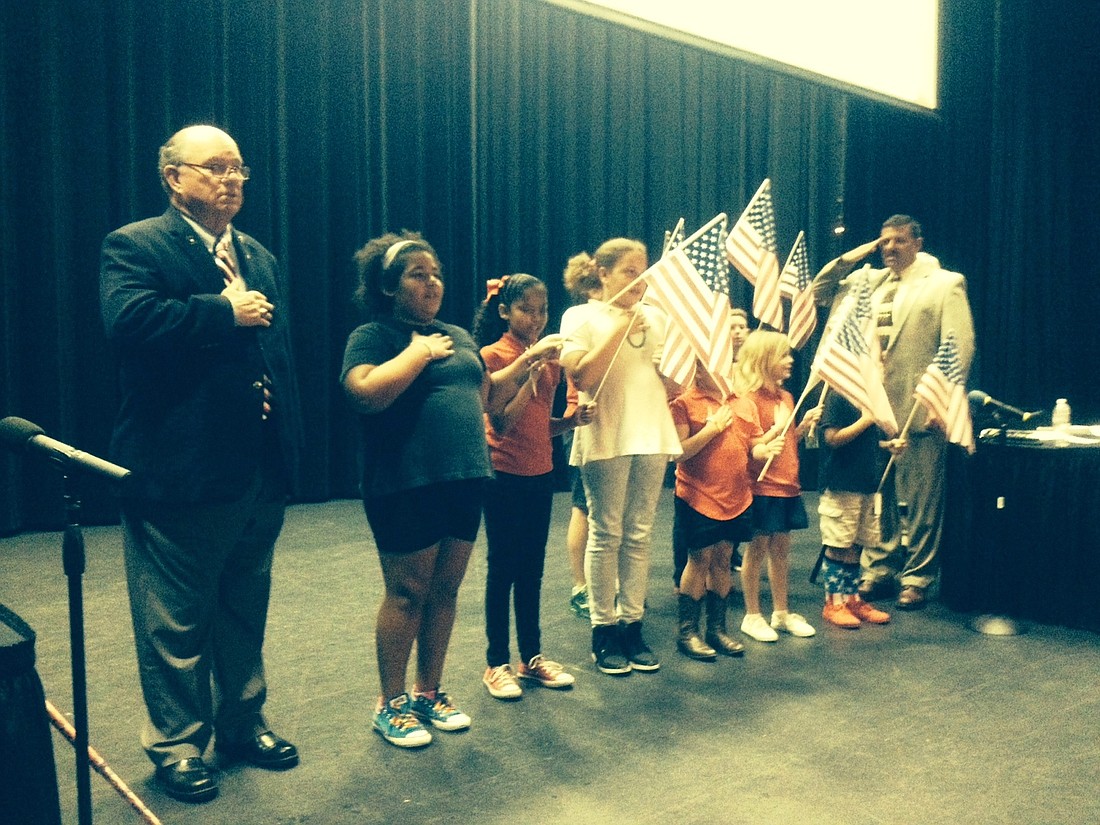- April 19, 2024
-
-
Loading

Loading

A town hall on Gulf War Syndrome heard the voices of soldiers affected by the mysterious illness and those working to helping them. The syndrome is suspected to have caused a variety of problems for veterans in the Persian Gulf region. It is not stress-related; it is believed to have a physical cause.
Organized by Ormond Strong, the event was held Feb. 28 at the Performing Arts Center.
Gulf War Syndrome afflicts many who served in the Persian Gulf area from the 1990 invasion of Iraq to the present day. The symptoms are many, including fatigue, pain, memory problems, insomnia and psychological disorders.
“We know it’s not stress. Stress doesn’t cause kidney failure at age 30.”
DEBBIE KRUCK-FORRESTER, On Gulf War Syndrome
Suspected causes are smoke from oil well fires, insecticides, insects, depleted uranium used in weaponry and medicine given to fight chemical weapons.
Speakers at the town hall said the Veterans Administration has yet to call the symptoms Gulf War Syndrome, instead only referring to it as a multi-symptom, undiagnosed illness.
But Jeff Bumb, director of Volusia County's Veterans Services Division, said his office accepts the challenge of applying for compensation and encourages veterans to come in to his office, though he did say it was one of the hardest claims to handle.
Dr. Frank Farmer, of Ormond Beach, former Florida surgeon general, said a definitive cause has not been found. He said the fact that some do not suffer from it could be related to genetic makeup.
It’s not Post Traumatic Stress Disorder, emphasized Debbie Kruck-Forrester, leader of Ormond Strong.
“We know it’s not stress,” she said. “Stress doesn’t cause kidney failure at age 30.”
She compared it to Agent Orange, which afflicted Vietnam veterans.
Several veterans mentioned pills that they were told to take to ward off the effects of a possible chemical attack, and they now suspect the pills.
Danny Giacobba, a veteran who works as a counselor, said recovery has different meanings for different people.
“It’s an ongoing process,” he said. “It’s finding a place in the world, establishing relationships and finding happiness.”
Sgt. 1st Class Tim Forrester, one of the soldiers who invaded Iraq in 1990, said it was one the largest movement of men and materials since Gen. Patton raced across Europe. He described the quick victory and then the victory parades back home.
Later, he noticed he would get angry at little things. There was stress, fatigue and joint pain, but he does not regret his service.
“I’m still damn proud of my career and damn proud to be a soldier,” he said.
Ormond Strong is a nonprofit group that was originally formed to support a National Guard Unit that was deployed to Iraq and now has a mission to support current soldiers and veterans.
Also on hand at the event, giving out material, were the Psychological Rehabilitation and Recovery Center, Veterans Affairs and Miami VA Health Care Services.